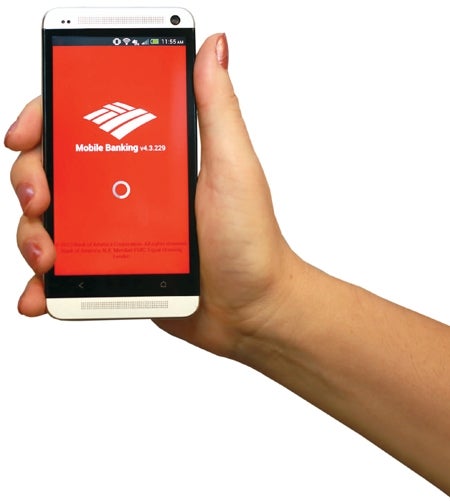Banks and credit unions go where their customers are. A hundred years ago, that meant downtown centers. Then came suburban branches and drive-through lanes, ATMs in shopping malls and airports, and, later, personal computers right in their homes. Now, in the age of mobile, financial institutions are increasingly focused on making themselves accessible from smartphones and tablets.
Many Central Massachusetts banking brands have introduced or expanded their mobile offerings. For some, the shift represents a game-changing adjustment. For others, it’s an expansion of relationships that remain rooted in those old-fashioned downtown offices.
One of the big trendsetters in mobile banking in the region is Marlborough-based Digital Credit Union. When it comes to the use of Android-based apps, for example, Google reports that DCU’s app has been installed more than 50,000 times, compared with less than 10,000 for any other Central Massachusetts banking institution.
Spokesman John LaHair said DCU’s tech-focused outlook goes back to its origin as an institution for employees of the one-time technology powerhouse Digital Equipment Corp.
“Our membership base is so savvy when it comes to technology, just because of our roots,” he said. “The credit union was established for Digital employees, and they still play a very big part in banking with us, (as well as) their family members; it’s a generational thing.”
DCU was one of the first financial institutions to have a website, LaHair said. And, while many local banks and credit unions are just rolling out remote check deposit features, which let customers use the cameras on their phones to deposit checks digitally, DCU introduced the feature in 2008. The credit union recent announced it has reached 100,000 registered remote deposit users.
The credit union says mobile banking has helped it attract and keep members across the country in places where it has no physical presence, reduced its need to share bank branches with other credit unions outside its base area, and pushed the cost of processing checks down dramatically.
Worcester-based Commerce Bank is just starting to roll out a remote deposit feature, but CEO Brian Thompson says there’s no doubt mobile banking is already changing how the company does business. For some customers, he said, it’s critical.
“Particularly a lot of young people who are very mobile,” he said. “They don’t have the time, desire or wish to really go into one of the locations.”
Thompson said the trends toward electronic banking are clear, from online bill paying to customers who buy everything with a debit card and rarely even stop at an ATM.
“It’s not a cashless society, but there’s a lot of people who, if you ask for $10 (in cash) in their pocket, they might not have it,” he said.
The Retail Branch Still Lives
Commerce has responded not just by providing new services but by reducing its expansion of old-fashioned ones. He said it’s been three or four years since the bank built a new branch.
“Our strategy is not to build a lot of new offices, because they’re expensive,” he said. But Chris Foley, senior vice president and director of retail banking at Whitinsville-based UniBank for Savings, said it’s far from time to start shuttering branches. He said market research shows that about half of young people still open their first accounts at physical branches.
“We want to make sure we offer all the avenues to our consumers,” he said. “The brick-and-mortar is still important.”
Kenneth Simms, chief marketing officer at Hudson-based Avidia Bank, said the bank started its mobile banking efforts a little over a year ago and introduced remote check deposits earlier this year. Like Foley, he said mobile banking doesn’t necessarily reduce the need for physical locations. Instead, he said, it helps make sure the bank is involved in more parts of its customers’ finances, from paying bills to shopping online. More mobile options allow that to happen, he said.
“Every bank will tell you they’d like to expand the relationship with every customer so you continue to do more business with them and make it easier to do more business with you,” he said.
James Garvey, president and CEO of St. Mary’s Credit Union in Marlborough, said the credit union has mobile apps and can do remote check deposits, and it will add mobile bill payments soon.
He said having a mobile presence can boost a financial institution’s real-world presence as well. St. Mary’s is in the process of joining a national ATM network, which will allow members to use ATMs across the country for free. Using their smartphones, customers will be able to find the nearest ATM in the network, effectively giving the credit union a wider presence than big national banks.
Meanwhile, he said, the mobile features alone seem likely to reduce foot traffic in the credit union’s branches.
“It’s so much quicker and so much easier,” he said. “Everyone is looking for convenience, and they’re looking for service ‘at the speed of now,’ is what we like to say.” n

